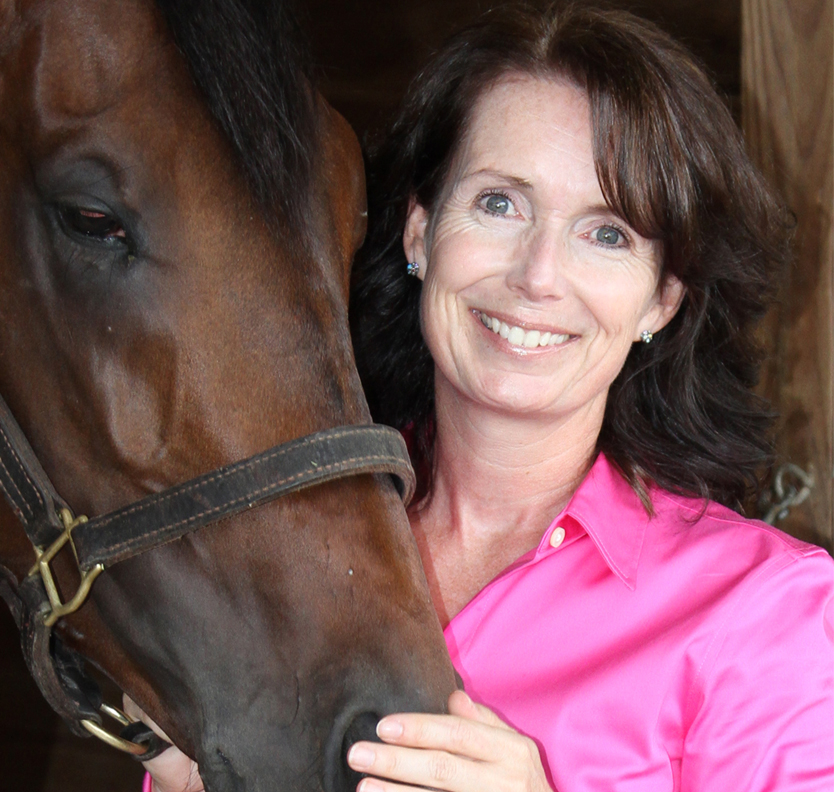My RTIP Story: For McGovern, Understanding The Big Picture Of Racetrack Operations Has Been Key To Success
In the decades since Ann McGovern made her first professional foray into the Thoroughbred horse racing, the New Jersey native and avid horse lover has seen the industry pass through several iterations.
A racetrack manager for much of her career, McGovern has weathered the highs and lows of racing, acquired a lifetime of experience in navigating its politics, and helped build and institute change that she hopes will bring about a better future for the sport. Throughout it all her passion for racing, its people, and most especially its animals — a passion that began on the horse farms of her childhood — remains unwavering.
McGovern's history with horses started in her home state of New Jersey. Growing up in The Garden State, she took riding lessons early and eventually began showing hunter/jumpers.
“I've loved horses since I was a little kid,” said McGovern. “But in high school, I worked at a racehorse farm as a hot walker, a groom, and an exercise rider. That was what first piqued my interest in racing.”
With no direct ties in her family to racing, it was a friend of McGovern's father with interest in Standardbreds who approached her about a program at the University of Arizona called the Race Track Industry Program. Having graduated from West Virginia University, the program was exactly what McGovern needed to open doors in racing.
“When I went into the program, I wasn't sure where it would take me,” said McGovern. “That being said, as I went through the program and met more and more people in racing, I naturally gravitated toward management.”
In 1988, fresh from the RTIP, McGovern was hired by DeBartolo Sports & Entertainment Corporation as the assistant director for public relations and marketing at Louisiana Downs.
“I started in the marketing department at Louisiana Downs and worked in the press box there,” said McGovern. “I have some great stories about those days when the press box was full of writers from all different publications. It was such a fun and exciting time.”
She would stay with the company for 11 years, moving into a role as assistant director of operations for Remington Park and then into the position of director of operations for the same Oklahoma track.
“The RTIP gave me the foundation to understand a lot of the different aspects of racing from how a racing office runs to mutuels, to even the Breeders' Cup,” said McGovern. “At the time I was studying, the Breeders' Cup hadn't come into play and was just surfacing as a possibility. Studying the plan for the Breeders' Cup, how it would be structured, and how it would affect racing gave me a lot of insight. It also gave me a good foundation regarding the importance of simulcasting, marketing your signal, and how that can really help purses and generate revenue. These are things you really can't learn anywhere else, and they gave me a head start when I did get my first position at a racetrack. I didn't come in completely blind, and I have been in racing management ever since.”
After leaving Remington Park, McGovern took the position as vice president of operations for Sam Houston Race Park, which she held for 13 years. She later became president of Ruidoso Downs in New Mexico before deciding to step into semi-retirement.
But the choice to move racing to the periphery didn't last long, and McGovern was soon knee deep in projects to renovate and revitalize struggling tracks.
“I did project work for friends of mine in racing which included Kentucky Downs and Arizona Downs,” said McGovern. “Arizona Downs was a great project. The owners purchased the old Yavapai Downs, which had stood vacant for 10 years and had a roof that leaked. We renovated that entire facility, which I absolutely loved doing and we got racing up and going again in Prescott Valley. That was a really satisfying project to work on for me.
“From there, I was contacted by the Horseracing Integrity and Safety Authority (HISA) and jumped at the opportunity to be involved with something that I think will be really good for racing.”
Created when the Horseracing Integrity and Safety Act was signed into law in December of 2020, HISA is an independent, self-regulatory organization designed to ensure the integrity of Thoroughbred horse racing as well as the safety of its horses and jockeys using national standards. Overseen by the United States Anti-Doping Agency (USADA), the hope is that through the authority will be empowered to implement new standards of action that including anti-doping, medication control, and racetrack safety programs.
With so much for the industry at stake, McGovern finds she continues in her capacity as the director of racing safety for HISA to draw on the experiences she gained in the RTIP and later applied with aplomb when at the helm of racetracks around the country.
“The things I learned in the RTIP have stayed with me throughout my career,” said McGovern. “My experience in racetrack management and being hands on in so many areas of racing allow me to understand other people's points of view— like walking in someone else's shoes every day. I know what it's like to be a groom and to be an exercise rider, to park cars and to be a mutuel teller, and I equally know what it's like to manage a racetrack. Once you understand and appreciate all those positions and their perspectives it is a lot easier to work with people and bring them to the table.


